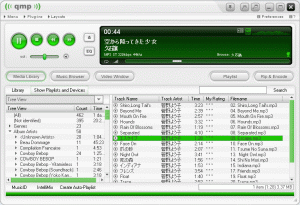Students Charged as Felony Hackers
In other educational news – 13 high school students in the PowerPage’s home state of Pennsylvania (the Kutztown 13 as they’re known) were charged with third-degree felonies for misusing their school-issued Apple iBooks. Their heinous crime? They used the administrator password (which was taped on the back of the computers, no less) to install unauthorized software. Not BitTorrent, not Limewire, but iChat AV. Sheesh.
Now that’s not the only thing that the kids are accused of doing, they also turned off the monitoring software (Apple Remote Desktop?) and even used it to monitor the admins. In addition, they’re accused of using hacking tools to find the new admin password when it was changed from the password that was taped on the back of the machines.
James Shrawder uncle of fifteen-year-old John Shrawder set up a Web site, CutUsABreak.org, to tell the students’ side of the story. The even posted the letter sent to the students charged with the felonies. The sells t-shirts and bumper stickers, including my favorite: “Arrest me, I know the password!”
The Kutztown Area School District issued a press release detailing the laptop policy violations but the charges still smack of heavy-handedness to me.
Do they really want to graduate a class of students that must check “Yes” for the question “Have you ever been convicted of a felony?” Give them community service and suspend their computer or Internet privileges, maybe, but felony convictions for being kids? Give me a break.
UPDATE:
New charges were filed yesterday against the teens. A charge of computer theft has been lodged against all 13 defendants, so that they are now charged with three variations of computer trespassing.
Source site is now 404.
Is it just me, or is this just an instance of using big words and the law to cover the stupidity of the administration?
First off: Charging 15 year old kids with a felony for this? To me, given the crime, its as if a teacher charged a child with “criminal assault with a deadly weapon” because the kid threw a snowball at someone else. It is true that the kids broke the rules – and for that they should be punished. Suspended from using the computers maybe. But charging them with criminal offenses of this degree is beyond any level of comprehension.
Second of all, though the kids did do wrong, the administrators shouldn’t be so easily off the hook either. If anything, it seems that they are using these allegations and charges to take attention away from their clear lack of competence. They essentially created the massive security hole that was so easily exploited, and should be equally under scrutiny for their extreme level of incompetence.
Visit www.cutusabreak.org for more, albeit biased, information.

